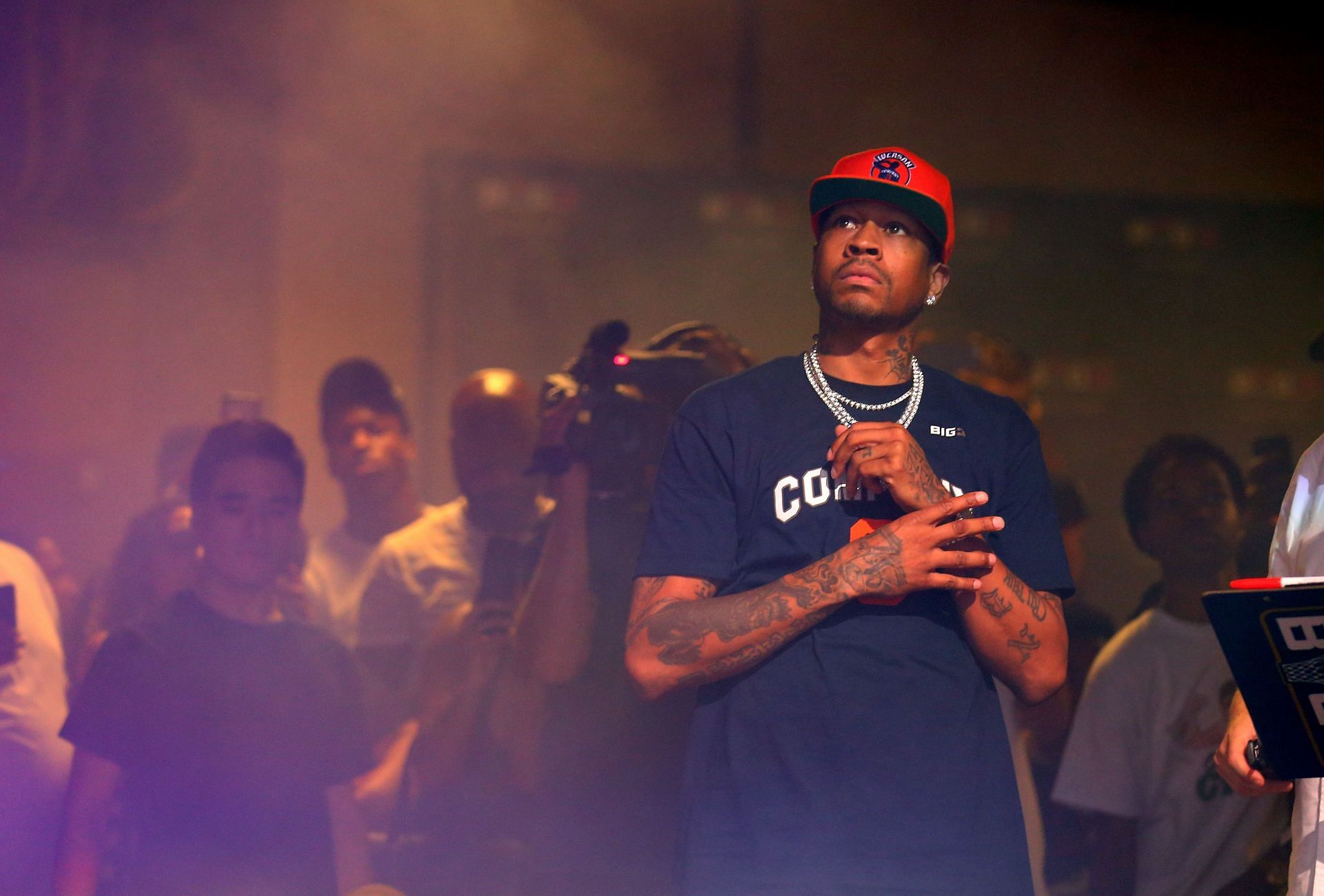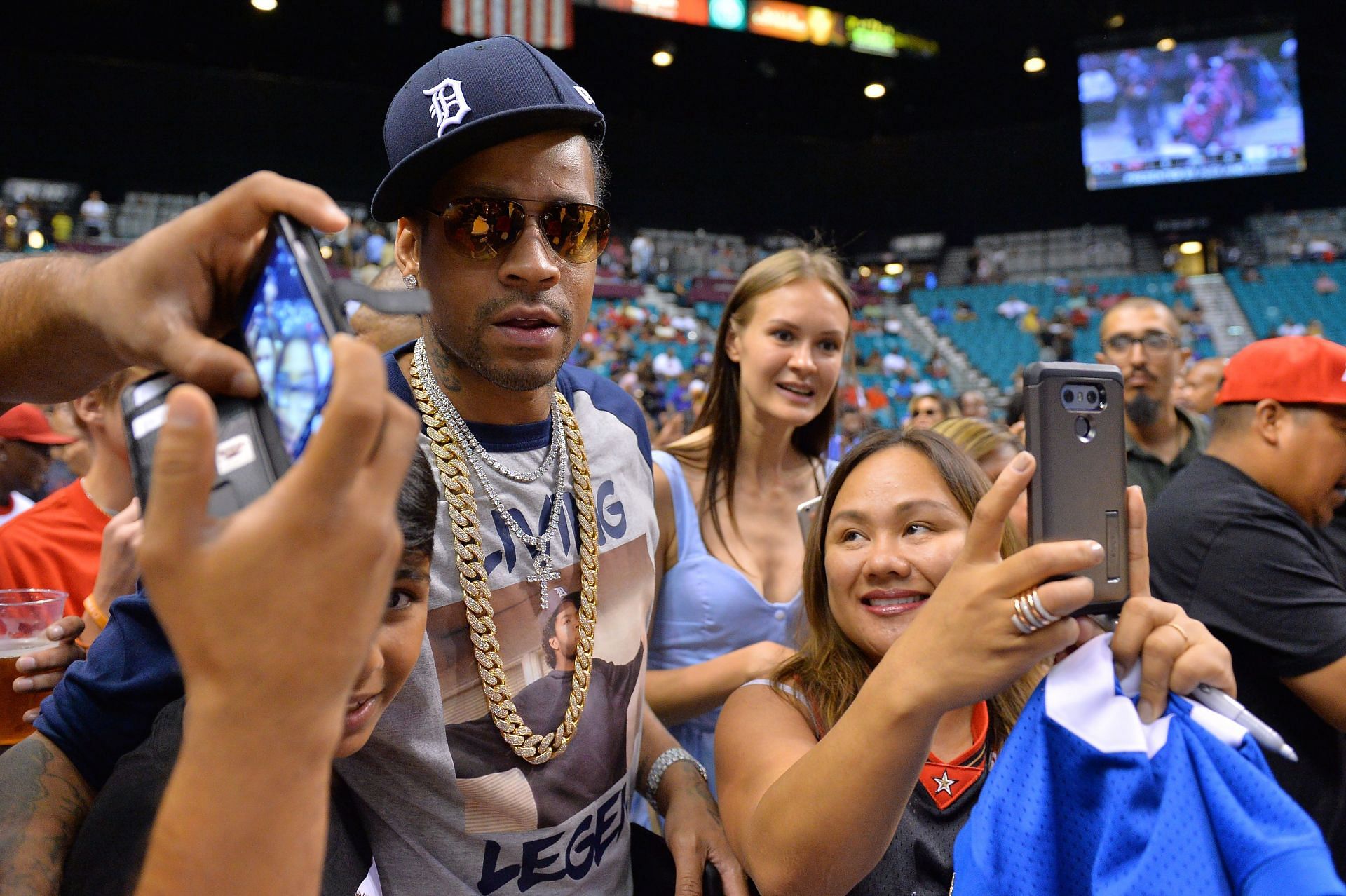
Why Allen Iverson's height could not stop him from becoming one of NBA's all-time dominant scoring guards
Allen Iverson's height didn't stop him from becoming a dominant point guard, MVP, Rookie of the Year, a 11-time All-Star and a Hall of Famer.
Listed at 6-foot (1.83 m), Iverson was realistically a 5-10, 5-11 point guard with ballhandling skills that had him as the best ballhandler to play the game in the minds of many.
Be it Iverson's crossover or his inverted pull-back, his signature moves left an impression in the minds of anyone who watched him play.
Moreover, Allen Iverson's height never stopped him from becoming a cultural icon. His cornrows, oversized T-shirts, durags and tattoos are a quintessential part of what makes him an icon. Iverson's influence was such that it made him one of, if not the most, influential players to have ever played the game.
Allen Iverson's height might be the reason he developed a god-like handle

At a time when teams made 13 to 14 3-point attempts per game, being a high-scoring small guard relied heavily on one's ability to penetrate the paint. If you could get to your spot reliably and get a shot off, you had an incredible chance of scoring 25-plus points per game.
Allen Iverson's height never got in his path to becoming one of the greatest ever.
It was perhaps his lack of physical gifts that made him such a prolific ballhandler, developing moves that would inspire players for decades. Iverson's crossover is undeniably his most memorable and the most potent of all his moves.
As former NBA champion Isiah Thomas once remarked in an episode of NBA TV's Open Court, what made Iverson's crossover wasn't as tight (or compact) as certain players of his time (Chris Jackson, Rod Strickland, etc.).
Thomas and his peers practiced a crossover that was extremely compact, unlike Iverson who had a bit of a flailing crossover, which extended all the way out of his stance. This allowed for an easier way into the jump shot.
These moves specifically made Allen Iverson remarkable and allowed him to become a high-scoring guard.
Iverson led the league in scoring at a time when a lack of size put one at a significant disadvantage. During the 2001-02 season, Iverson's unfathomable average of 31.38 points per game beat out the next best scorer, Shaquille O'Neal, by 4.19 points.
In fact, on the list of top 10 points per game scorers for the 2001-02 season, the average height of the nine people Iverson beat out was approximately a staggering 6-9.
His untouchable MVP season saw the Philadelphia 76ers progress to the NBA finals to spoil the LA Lakers' perfect playoff run, but came up significantly short of the title. Iverson led the league in scoring in four seasons ('99, '01, '02, '05)
On the defensive end of the floor, Iverson was no joke either. AI led the league in steals from 2001 to 2003, with a career average of 2.2 steals.
Following his departure from Philadelphia, Iverson spent about three seasons with a young Carmelo Anthony in Denver, and spent his final seasons with the Detroit Pistons, the Memphis Grizzlies and the Philadelphia 76ers.
